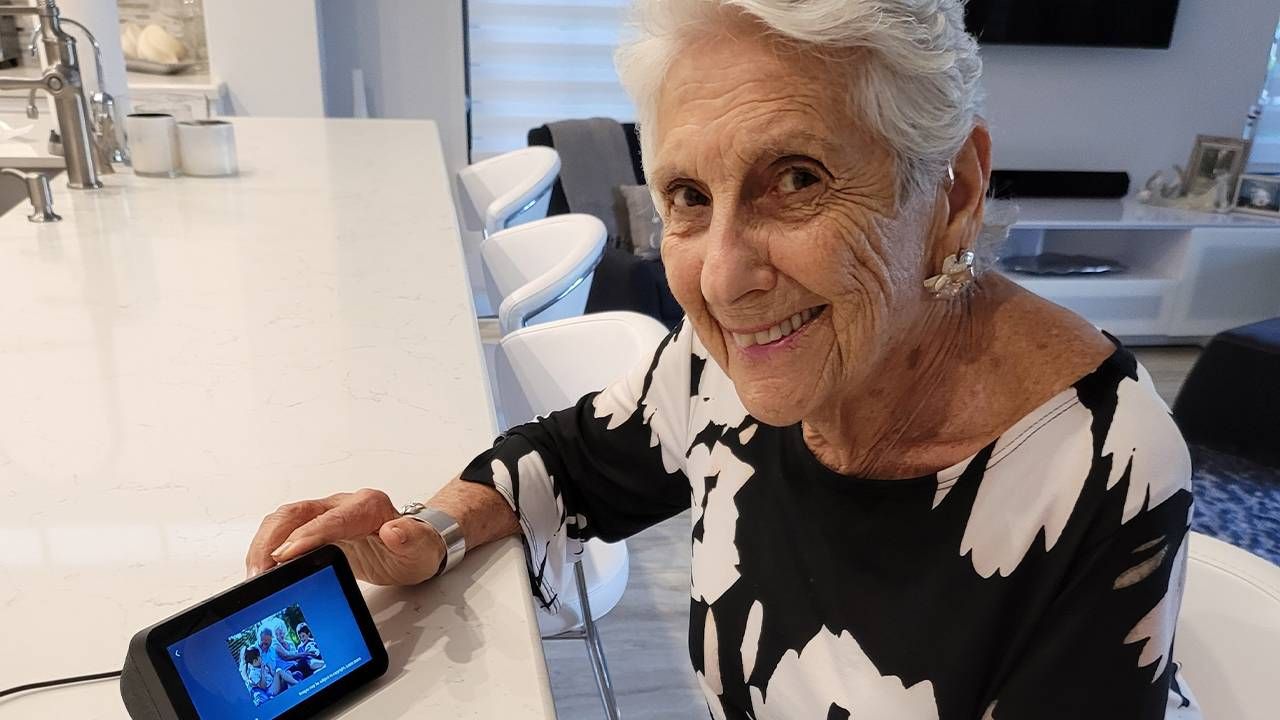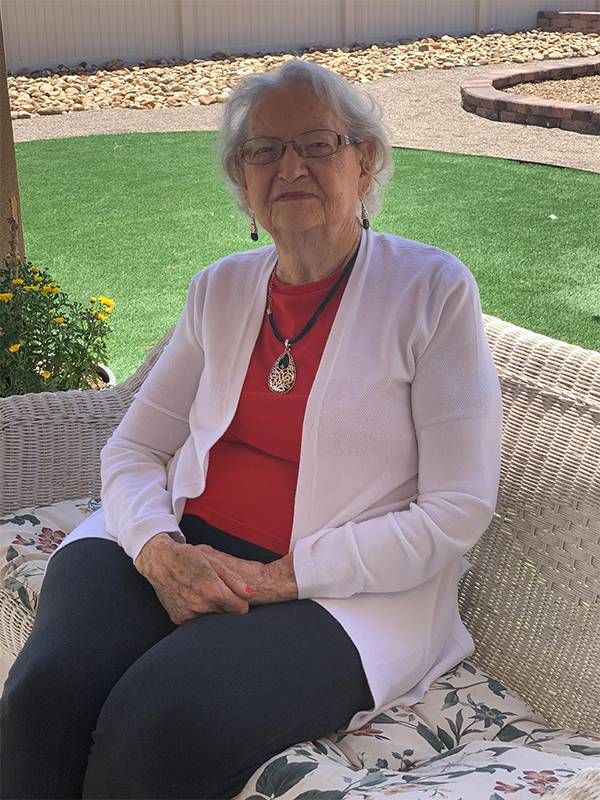You Can Have a Robot for a Roommate
How technology may help people age at home and address worrisome forecasts of a shortage of caregivers
One of the most emotionally laden and difficult conversations a family can have involves what to do when an older relative can no longer live independently — at least not fully. Most of us want to keep our independence for as long as possible, while loved ones may be concerned about our ability to manage it safely.

These days, though, technology can make living alone safer. It serves as a bridge, a way out of the house, connecting to experts at the other side who are there to help. It also provides older adults with cyberpets and "cyber sidekicks" that battle loneliness without needing to be bathed or fed. The New York State Department of Aging was impressed enough by these devices that it announced it would start distributing them to older adults who are most in need.
"It's wonderful for me to be able to speak and get a response."
In addition to combating loneliness, these gadgets can save lives. "For several days, I was getting weaker and weaker," says Bonita Hoyle, an 86-year-old grandmother in New Mexico. "One night, I woke up at 3:30 a.m. and thought, 'That's enough of this.' I said, 'Alexa, call for help'."
Saying these words prompted the system to connect her to the company's emergency dispatch team, which led to an extended hospital stay. She is now back at home, feeling better. She believes the technology — it's called a Companion — saved her life.
You Choose Who to Call if You Need Help
The Alexa-enabled medical alert system, one of several technology products designed to assist solo agers, is operated by SmartCompanion Care, a new company that is affiliated with Veterans Home Care. That service has helped over 20,000 veterans and their surviving spouses access their VA Aid and Attendance benefits to receive in-home and other care with no out-of-pocket cost. The company developed the technology for veterans and their families — and it's free, under a certain veterans benefit — but now, any older adult or disabled person can buy it.

SmartCompanion costs $250 to set up, which covers the cost of installing and programming all of the hardware — typically a smart router with battery back-up, Echo Show video screen with battery back-up and several Echo Dot smart speakers. Other companies offer robotic cats ($124.99), dogs ($139.99) and now birds ($64.99).
David Laiderman, CEO of Veterans Home Care and SmartCompanion Care LLC, said his product connects to his firm's urgent-response team. "The Companion is customized for each individual and pre-programmed for a simple set up," he says. "Seniors can say, 'Call my son,' for a video or audio call. Alexa devices bought off the shelf are not pre-programmed to dial 911 for emergencies."
Unlike other options that work with a push of a button, the VetAssist Companion works only with your voice: you can tell it to call someone, and it dials the number for you. It works for video calls, too. Since it works with Alexa, you can also use it for dozens of other tasks, from reminding you to take your pills to listening to the news to playing games. With Alexa, if you say something in the right way, it happens.
Hoyle says she also uses the Alexa-enabled device for routine tasks, including as a timer. "It's wonderful to me to be able to speak and get a response," she says. "I have macular degeneration, so I don't see well. I don't dare put anything on the stove without a timer."
"We knew it was time to re-imagine senior care," Laiderman says. "The launch of our VetAssist Companion was already in motion to address pre-pandemic caregiver shortages and rising costs. Caregiver shortages are linked to costs and predicted to worsen. [...] We stepped up our technology development to reduce isolation and loneliness among homebound seniors during the COVID pandemic."
Addressing Forecasts of a Caregiver Shortage
Paul Osterman, a professor of human resources and management at the Massachusetts Institute of Technology's Sloan School of Management, recently concluded that by 2030 there will be a national shortage of 151,000 paid caregivers and 3.8 million unpaid family caregivers. A decade later, the gap will grow to 355,000 paid workers and 11 million family caregivers.
Evelyn Chernetz, who lives in a senior community in Florida, also finds technology helpful, especially when it gives her alerts. "It reminds me to do so many things I wouldn't remember to do otherwise," she says, adding that when her daughters check in on her, they are "pleasantly surprised" with how quickly she moves through her to-do list now.
Like Chernetz's daughters, Erika Hilliard, a working mom in Texas, recommended that her mother try the Companion system. Her mother lives in a retirement community.
"It's helped me keep my sanity," she says, because the tech offers 24/7 protection in case of an emergency. "A video chat is all she needs," she adds.
Still, the reality is that no tech works perfectly every time. There may be privacy concerns, as well. Companionship robots, which resemble and can mimic the behavior of dogs or seals, come with their own challenges. A robotic pet may not soil the carpet, but it might be used to conduct constant surveillance, turning an assisted-living facility or nursing home into a reality TV set.
Even if no one is watching or tracking in real time, location-tracking, voice recording and other data may be vulnerable to being stolen by hackers and sold on the dark web. This could reveal intimate moments alongside increasingly personal user data, such as daily routines and locations.
Are These Devices Secure? Are They Safe?

Not all tech is as equally risky, of course. Laiderman, for example, says that his service, which uses military-grade encryption, fully complies with HIPAA, the Health Insurance Portability and Accountability Act of 1996, and comes with a privacy-protection guarantee.
Another thing to consider: the ethics of these companionship devices, including whether they may confuse or unduly deceive people with dementia. Some systems may actually increase in-person isolation, much like social media or other screen-focused activities.
Still, many families say that these issues pale in comparison to the potential benefits.
"Surprisingly, we found that privacy is not an issue in the post-implementation stage," write the authors of a paper published in the International Journal of Medical Informatics in September 2019.
A 'Game Changer' for Some Families
"Seniors in the reviewed articles did not experience any negative impact of the technology on their privacy," they write. And in several studies, "seniors had positive feelings about maintaining their privacy while using the technology and were not afraid that the use of technology would jeopardize their privacy."
Though protections like two-factor authentication and data encryption lower the risk of a privacy breach, in our networked world, we often trade privacy for convenience. It's just what might happen when we turn on a device with a camera or a microphone because so much of our world is recorded and turned into data, then shared via the Internet and on platforms like Alexa, Apple Homekit, or Google Assistant. And it's not just laptops, tablets, and cell phones. It's essentially any smart device in the Internet of Things that senses you or your voice, from doorbells to TVs to thermostats to vacuum cleaners.
It's about balance: the tech must know enough to keep you safe yet protect your privacy. The system might know your daily routines, but in most cases, it won't share them.
"My husband says it became a game changer," says Hilliard, the working mom in Texas. "It helps her, but it also helps the family."

Read More

